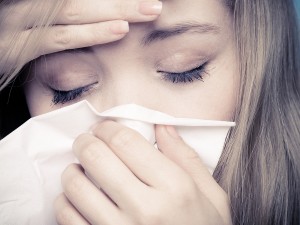Written by Dr. Elisha Cook ND
Many individuals are experiencing a high degree of panic over the recent COVID-19 outbreak. However, the risk for individuals in Oxford/Blandford Blenheim is low. Regardless, many individuals worry, and so, it is important to clear the air of any myths or misconceptions around the outbreak. We have provided below information that is available through the Public Health unit, but if you require more information about what exactly COVID-19 is, please refer to the following website: https://www.swpublichealth.ca/content/community-update-novel-coronavirus-covid-19.
For more updates on the COVID – 19 outbreak, please see: https://www.canada.ca/en/public-health/services/diseases/2019-novel-coronavirus-infection.html#a3
What is COVID-19, what are the symptoms, how is it spread, and what can I do to protect myself?
COVID-19 is a viral infection, similar to the common cold, which can cause such symptoms as cough, fever, and shortness of breath. In elderly individuals or those with immune compromised systems such as those with diabetes, respiratory diseases, cancer, etc., symptoms can progress to pneumonia, organ failure or possibly death IF symptoms are not addressed.
COVID-19 is spread through respiratory droplets in the form of a sneeze or a cough. With this being said, the best prevention is as follows:
- Cover your mouth and nose when coughing or sneezing with your inner elbow
- Regularly washing your hands with soap and water
- Avoid making contact with your nose, eyes and mouth unless you have washed your hands with soap and water
- Stay at home if you are sick
- Avoid long-term homes/facilities or coming in contact with immune – compromised individuals if you are sick
If you are healthy, wearing a mask does not help to reduce spread of COVID-19, but rather reduces the stock for health care providers and those that are ill.
What are we doing as a clinic?
At PNHC, we keep a high degree of cleanliness in order to protect our patients and the community. As health care providers, we are obligated to vigorously wash our hands or disinfect our hands any time we come in contact with our patients. We always have disinfectant and masks ready for any cases of individuals arriving at the clinic who may be sick with a virus, bacteria, etc. With this being said, we are taking extra precautions to disinfect surfaces on a more “regular” basis (several times per day) in order to maintain your protection and health.
We do ask that if you are experiencing any symptoms of COVID-19 (recent onset of fever, cough, or difficulty breathing) or suspect that you may have it, that you give as much notice as possible with cancelling or rescheduling your appointment, and seek out testing.
With this in mind, the question remains, who should be tested for COVID-19? Public Health states that any individual with a recent onset of fever and/or cough or difficulty breathing and any of the following within the last 14 days prior to illness onset should be tested:
- Travel to an area with an active outbreak (see: https://travel.gc.ca/travelling/advisories)
- Close contact with a confirmed or probably case of COVID-19
- Close contact with a person with acute respiratory illness who has been to an area with active outbreak (see: https://travel.gc.ca/travelling/advisories)
If you require testing, please contact our local public health unit or your medical doctor to facilitate proper testing.
Source: https://www.swpublichealth.ca/content/community-update-novel-coronavirus-covid-19



